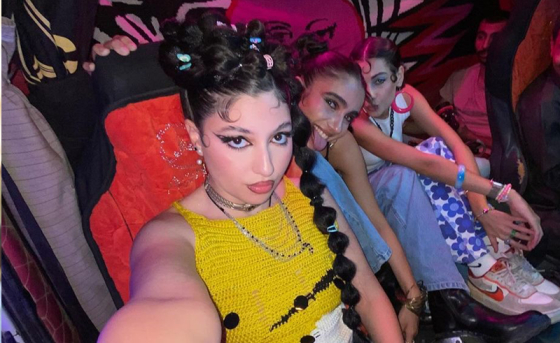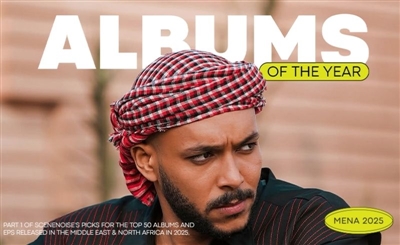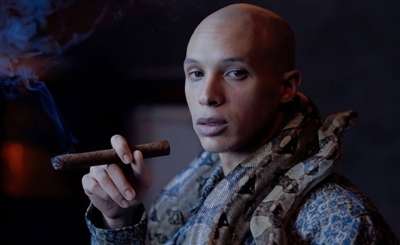Lella Fadda x Abyusif: The Unlikely Team Pushing the Indie Pop Sound
Lella Fadda’s collab with Abyusif attempts to take her indie pop sound to uncharted territories, and it works.

Egyptian-Italian singer, songwriter, and occasional rapper Lella Fadda is venturing into uncharted territories with the release of her latest two singles, ‘Fokak Meni’ and ‘Msh 3ayzak’, as she collaborates with iconic hip-hop figure Abyusif. Together, they are redefining indie pop.
Lella Fadda has been steadily climbing towards indie stardom since her debut. While she could easily fit into the traditional pop sphere, she deliberately avoids it by collaborating with producers and artists outside the mainstream music scene. Preferring to reside on the alternative side of the industry, she seeks creative freedom and expression.
Choosing to collaborate with Abyusif, known as an anti-rap hero who often expresses disdain for hip-hop music (yet is arguably one of the best in the Egyptian - and possibly Arabic - rap scene), provides Lella with a platform to unleash her unconventional songwriting, unique vocal style, and innovative approach to pop.
Lella herself is an avid fan of Abyusif, as she has stated numerous times. Their previous collaborations on tracks like ‘Malksh Da3wa’ and ‘Bel 3aks’ have been among her most successful to date. Her admiration for Abyusif is evident in her music, with the rap snippets she incorporates clearly influenced by him.
Abyusif's production allows Lella to demonstrate her talent through unconventional sonic structures, blending industrial elements with hip-hop textures, while maintaining a minimal and subtle sound to highlight Lella's vocals. Her natural, spontaneous songwriting reflects her down-to-earth approach, sharing glimpses of her thoughts and carefree attitude, while avoiding topics and themes that are overdone in mainstream and indie pop. Her affinity for hip-hop is also apparent in her lyrics, where she occasionally adopts a boastful tone in certain bars.
Lella's songwriting also demonstrates depth, with introspective bars reflecting inner feelings and thoughts. She emerges as one of the most exciting pop artists in recent years, remaining true to herself while eschewing cliché topics and mundane themes that dominate Arabic pop music. Her production choices highlight her willingness to take risks in terms of sonic identity, offering a refreshing perspective within the Egyptian music scene.
Trending This Month
-
Nov 24, 2025
-
Dec 15, 2025






















